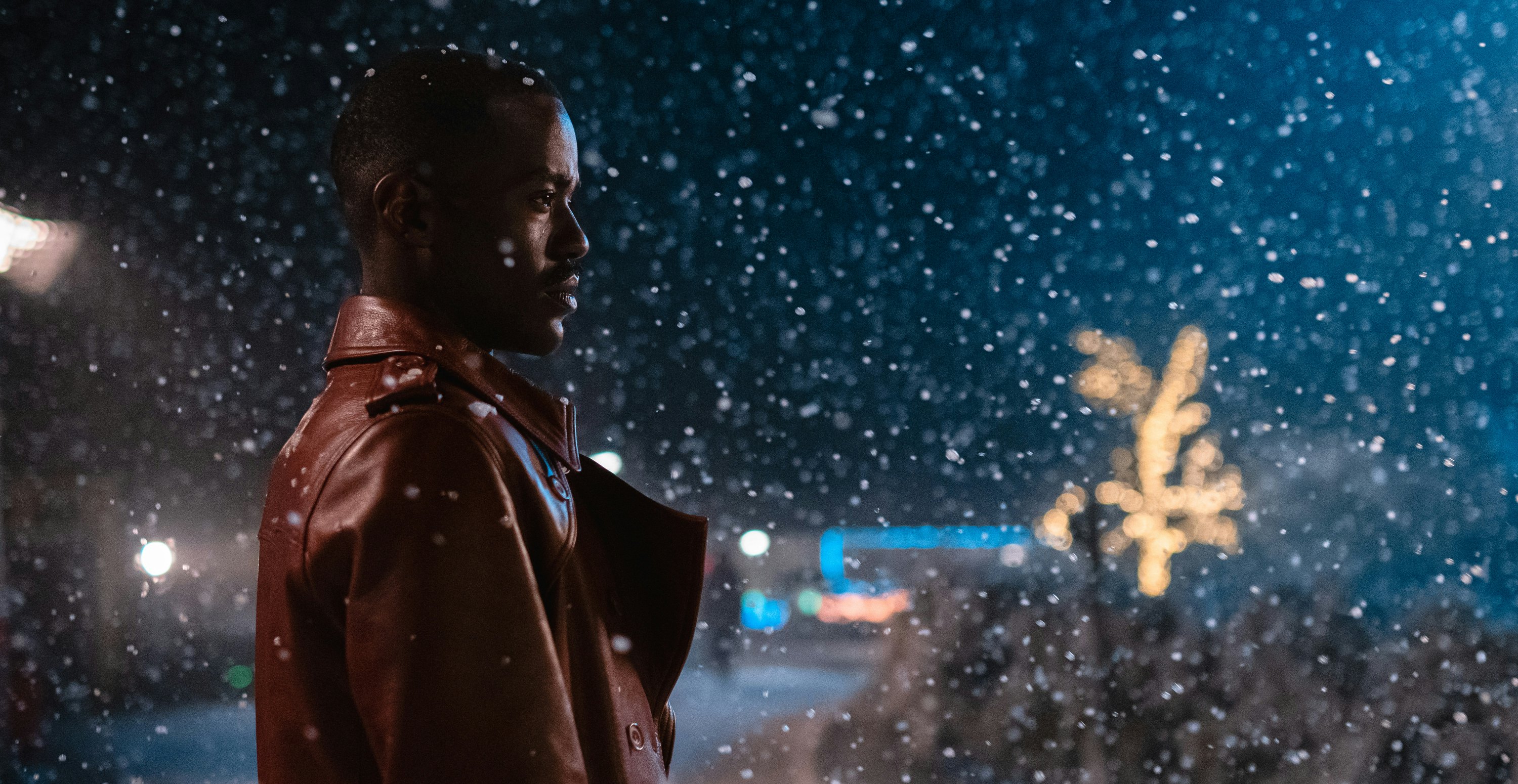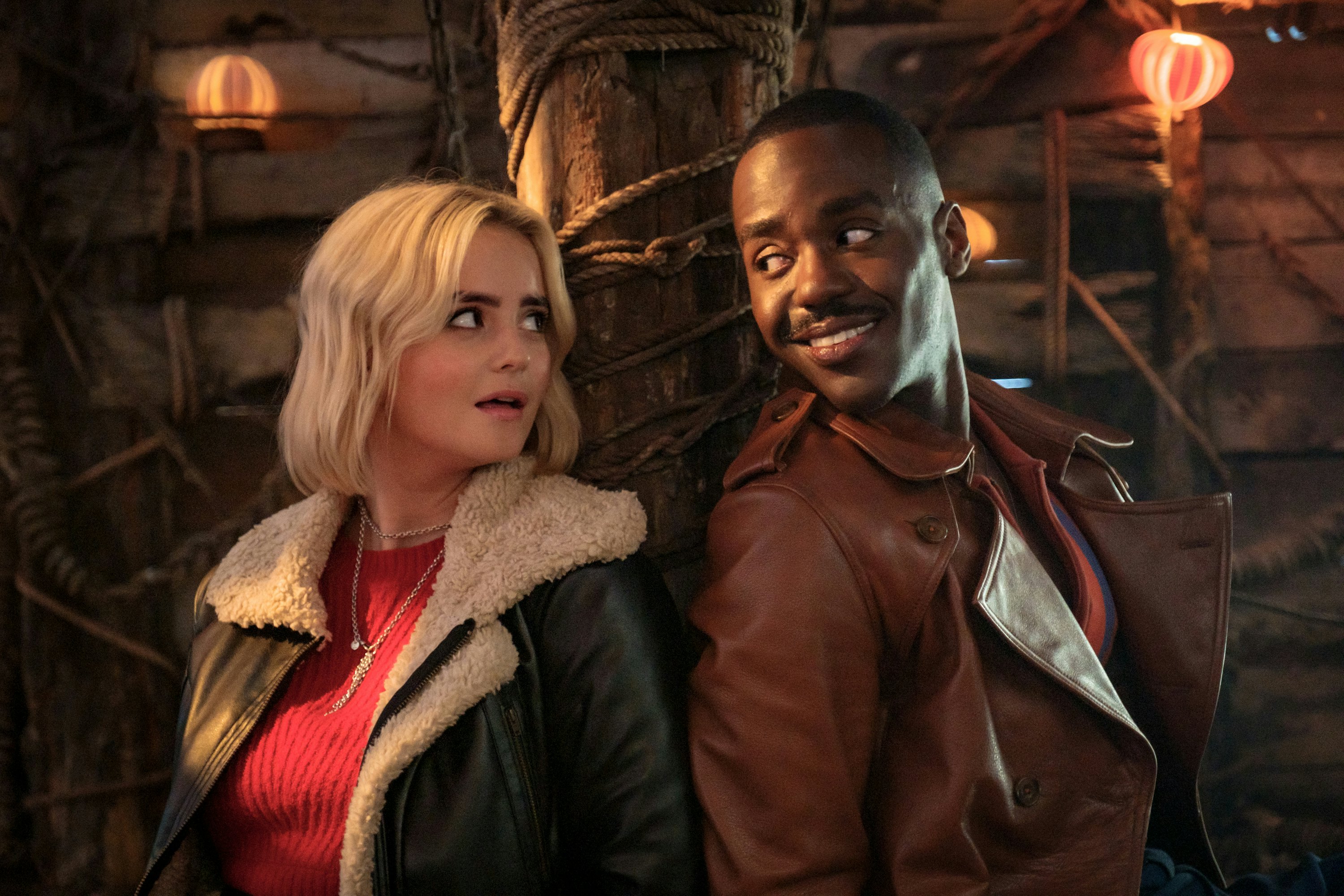
Change is written into the DNA of Doctor Who. From its very first regeneration, in which the show did the unprecedented and recast its lead actor, Doctor Who has adapted to the times. And so, over the past 60 years, each regeneration gives Doctor Who the chance to basically reboot the entire show.
Maybe the Doctor is a James Bond-type who wields all kinds of gadgets and drives a cool car. Maybe this time, the Doctor is a Peter Pan figure, traipsing through all kinds of fairytale-inspired adventures. Maybe he’s a tortured hero on the path to redemption or a goofy clown who plays tricks on kids. But with “The Church on Ruby Road,” the 2023 Christmas special that introduces Ncuti Gatwa as the 15th Doctor, Doctor Who feels like it’s doing something wholly new all over again.

Showrunner Russell T. Davies returns to reset Doctor Who again after 13 years away from the show. True to the holiday nature of this Christmas special (the show’s first in six years), the opening minutes of “The Church on Ruby Road” show the Doctor, with tears in his eyes, stepping out on a snowy street to watch a hooded woman leave a baby on the doorstep of a church on Christmas Eve. Eighteen years later, the baby has grown into Ruby Sunday (Millie Gibson, fresh and endlessly charming), a sunny young woman who has been selected to be the latest subject in a TV program that reunites orphans with their birth parents. But as she eagerly awaits the results of her DNA test, she becomes plagued by a series of near-fatal experiences. At each unlucky incident, the Doctor happens to be present, as well as mysterious little cackles and tiny, mischievous goblin hands that unscrew or untie whatever it is that almost snuffs out Ruby.
It all comes to a head when Ruby’s adoptive mother, Carla (Michelle Greenidge), is assigned to foster a baby girl discovered on Christmas Eve, the same day Ruby was abandoned. When Ruby looks away from the baby for a few minutes, the girl gets snatched up by the same goblins. Chasing after the baby puts her on a crash course to meet the Doctor, who had been tracking the goblins to their ship in the sky.

Ever the populist writer, Davies knew how to turn Doctor Who into a commercial hit, and did it with his revival of the show in 2005. But where his first stint with the Doctor borrowed heavily from the popular genre shows at the time — Buffy the Vampire Slayer and its monster-of-the-week formula meets teen soap elements, particularly — Davies approaches this new Gatwa-led era with a different strategy. From the opening melancholy minutes of “The Church on Ruby Road” to its Labyrinth-style musical sequences with the goblins and their baby-eating king, there’s no clear contemporary series that Doctor Who seems to be lifting from. The only comparable element in this fantasy-forward Christmas outing is an overall vibe: the nastiness of child-eating goblins aside, this era of Doctor Who feels like a spiritual peer of the sweetly magical realist franchise Paddington.
It’s smart for Doctor Who to reshape itself around a certain tone instead of a formula. The “nicecore” wave that Paddington represents is perfectly suited to Doctor Who, a sci-fi show that’s always been more about heart than science. While the Chris Chibnall/Jodie Whittaker era tried to chase the Netflix model of streaming prestige TV, Davies and Gatwa’s Doctor Who gets to forge forward with its own identity. This is a new era for the long-running series, one where magic and science are interchangeable, creatures can alter fate and create new timelines, and friendly neighbors barely blink at the sight of a TARDIS. Though this particularly fantastical episode might be a holiday one-off before the show returns to more solidly sci-fi outings, “The Church on Ruby Road” feels like an exciting new arena for Doctor Who to explore.

It’s all anchored by Gatwa, whose 15th Doctor is nothing short of dazzling. His introduction in the final 60th anniversary special, “The Giggle,” was too brief to give us an idea of his character, except that he was confident, cool, and had the smoothest legs of any Doctor. He finally gets a proper debut in “The Church on Ruby Road,” and Gatwa continues to be endlessly cool and charismatic with a certain degree of mystery. Gatwa’s Doctor also feels like a return to basics in many ways, unburdened by the trauma that so defined the past few iterations, though still not without his deep sense of pathos. All that matters is this: He’s a time-traveling alien who knows more than anyone else in the room and gets a rush of delight when there’s something he doesn’t know. And, of course, he’s always ready to save the world.
If “The Church on Ruby Road” is a preview of Gatwa’s era, the future is bright for Doctor Who. The show is finally trying something new while retaining the wholesome empathy that characterized it for over half a century. And in a landscape crowded with so many TV shows vying for attention, a little old-fashioned science-fantasy might be exactly what the Doctor ordered.







